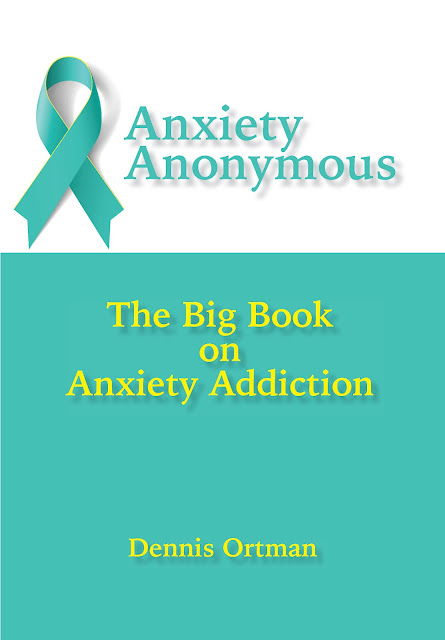Daily Excerpt: Anxiety Anonymous (Ortman) - Steps to Wholeness
Excerpt from Anxiety Anonymous -
Steps to Wholeness
Appreciating the addictive
quality of anxiety may open the door to a different way of finding relief and
enable you to be more patient with yourself. Conventional therapy has been
limited in helping because it does not reach to the deeper roots of anxiety in
the human psyche. Therapy, including medication, addresses the symptoms and not
the underlying cause in the human condition.
In the 1930s, it became clear
that psychology had failed in treating alcoholics. Carl Jung, the renowned
Swiss psychologist, announced the failure and the need for a spiritual
conversion. He called alcoholics “frustrated mystics” who looked for the Spirit
in the spirits. Bill Wilson, a hopeless alcoholic, found recovery outside the
walls of traditional psychological treatment. He and Dr. Bob Smith founded the
fellowship of Alcoholics Anonymous and formulated the Twelve Steps as the
guideposts of recovery. They realized from personal experience that only a
spiritual conversion through a Power greater than themselves could break the
chains of addiction. They quickly added that no particularly religious belief
or church affiliation was needed, only an openness to the depths of experience
and a willingness to work the program.
Over the years, the Twelve Steps
of Alcoholics Anonymous has been a powerful tool in the recovery of countless
alcoholics. It has a proven track record. Its success promoted its use by
others in distress: those addicted to other drugs and their family members.
Today, the same Twelve Steps are used for the recovery of those who gamble,
overeat, over-shop, or suffer sexual addictions. Family members are also
included in the self-help program. Recognizing the addictive quality of some
mood states, Emotions Anonymous groups have emerged, following the
spiritual/psychological guidance of the Twelve Steps.
The Twelve Steps of Alcoholics
Anonymous can help relieve suffering from anxiety. You do not have to profess
any religious belief to benefit from the steps, only be an open-minded seeker.
The steps draw from ancient wisdom sources, offering practical guidance to live
a good life in clear, simple, straightforward language. They assume that the
addictive behavior is only a symptom of a deeper problem that must be addressed
for a full recovery. Even though you may experience your nervousness as
touching your core, it only hides who you really are.
In simple terms, the Twelve Steps
invite you to stop, look, listen, and then consciously act according to your
true self. This book is an adaptation of the Twelve Steps to the problem of
anxiety.
What is the result of working the
steps? You move from an anxiety-driven life to a value-directed life.
American Book Fest Best Books Award finalist
For more posts about Dennis and his books, click HERE.
Sign up for the MSI Press LLC newsletter
Follow MSI Press on Twitter, Face Book, and Instagram.




Comments
Post a Comment